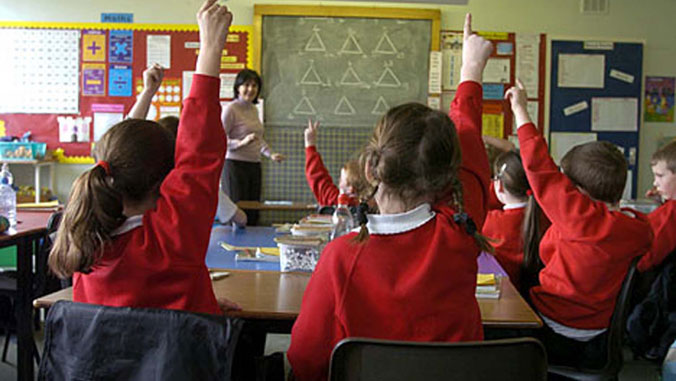Back in 2016, The Times reported that “ninety UK primary schools are refusing to accept pupils who live more than 300m away as Britain’s booming population pushes classrooms to crisis point.” The smallest catchment area is 92m, according to data from the online service FindASchool”.

Primary School selection was quite straightforward for us, considering we have twins. Although I must admit to waking on more than one occasion in a cold sweat thinking, I shouldn’t have been so bolshie only putting one option on the form. But it all worked out okay in the end.
We did, however, receive lots of emails in the four months that followed, still, in fact, asking us to clarify what we knew about this mystical and stressful thing called the Primary School Place Race. So here it is!
All Greenwich schools have a single point of entry and admit children in September. If your child was born between 1 September 2019 and 31 August 2020, he or she would qualify for a place in a reception class in September 2024.
Key Dates are as follows;
The reception admissions process for entry in September 2019
The application period starts 1 September 2023
Closing date for applications: 15 January 2024
Outcomes of applications 16 April 2024
Deadline for accepting is 30 April 2024
Appeal hearings June and July 2024
The online admissions system for applications is ready to go from September 2023, 24 hours a day, seven days a week.
Before you apply for a place, take a look at the Greenwich Primary School Admissions Guide here.
But what happens after you’ve entered the Primary School Place Race?
According to the Royal Greenwich.
Priority will go to children with a statement of special educational needs (SSEN) or an education, health and care (EHC) plan naming the school. Although we know a family who was still not placed by the October half term!
The remaining places are given in the following order:
1. Looked after children and previously looked after children who have been adopted or become subject to a residence or special guardianship order immediately after having been looked after. A looked-after child is a child who is in the care of an English or Welsh local authority in accordance with section 22 (a) of the Children Act 1989. An adopted child must have been adopted under the Adoption and Children Act 2002, which came into force in December 2005.
2. Sibling means a full, half, stepbrother or sister, or a child living as part of the family unit. This does not include siblings who attend a school’s nursery provision. If the last child to be offered a place is a twin or sibling from multiple births, the twin or multiple-birth siblings will also be offered a place(s) as an excepted pupil.
3. Children with an acute medical or social need for a particular school. This may also apply to an immediate family member. The application must be supported by a letter written by a hospital consultant, GP or social worker, setting out the reasons why the school is the only one that can meet the child’s needs and the implications for the child if they are not offered a place at the school.
Travel, work or childcare arrangements are not considered as being an acute medical or social need and will not be taken into account when deciding which applicants should be offered a place.
4. Other children based on home-to-school distance. The distance from home to school is measured as a straight line from the home address’s centre to the school’s main entrance. If two applicants live an equal distance from the school, the offer of a place will be decided by random allocation.
*this is commonly known as a finger-in-the-air method!
Your home address is considered to be where the child resides as their only or principal residence. Proof of liability for Council Tax will be required. If the child resides equally with both parents, the principal home address will be considered as being the address at which the child is registered while attending early years provision with a GP and, if applicable, the address of the parent who receives Child Benefit or Child Tax Credits for the child.
A court order will be required for children who reside with a relative or carer other than a parent. In establishing the principal home address, Greenwich reserves the right to ask for further information (such as proof of the tenancy period) and to check records held within the Council and with external agencies. If a false address is given and an offer of a school place is made on the basis of that address, we reserve the right to withdraw the offer of a school place at any stage during the primary admissions process.
To complicate things further, there are five schools in Greenwich with split sites: Bannockburn School, Heronsgate School, Invicta School, James Wolfe School and Windrush.
Be careful to check which is used to measure the distance to your home; in the case of James Wolfe, it’s the main entrance to the former Greenwich Town Hall on Royal Hill.
Faith-based schools have additional supplementary guidance notes.
But what happens if you don’t get your first choice?
In 2015, 80% of Royal Greenwich children received an offer from their first preference school on National Offer Day, with 130 appeals lodged and only two successful appeals (1.5%)
You have the right to appeal against a decision not to offer your child a place and any appeals submitted after the deadline (April) will be heard within 30- 40 school days of the appeal being lodged.
The Coram Children’s Legal Centre provides advice on school admissions appeals. They have a great website full of information, and it’s a valuable resource for many parents.
Royal Greenwich also has an FAQ around appeals here.
So good luck, and may the force be with you!
You must be logged in to post a comment.